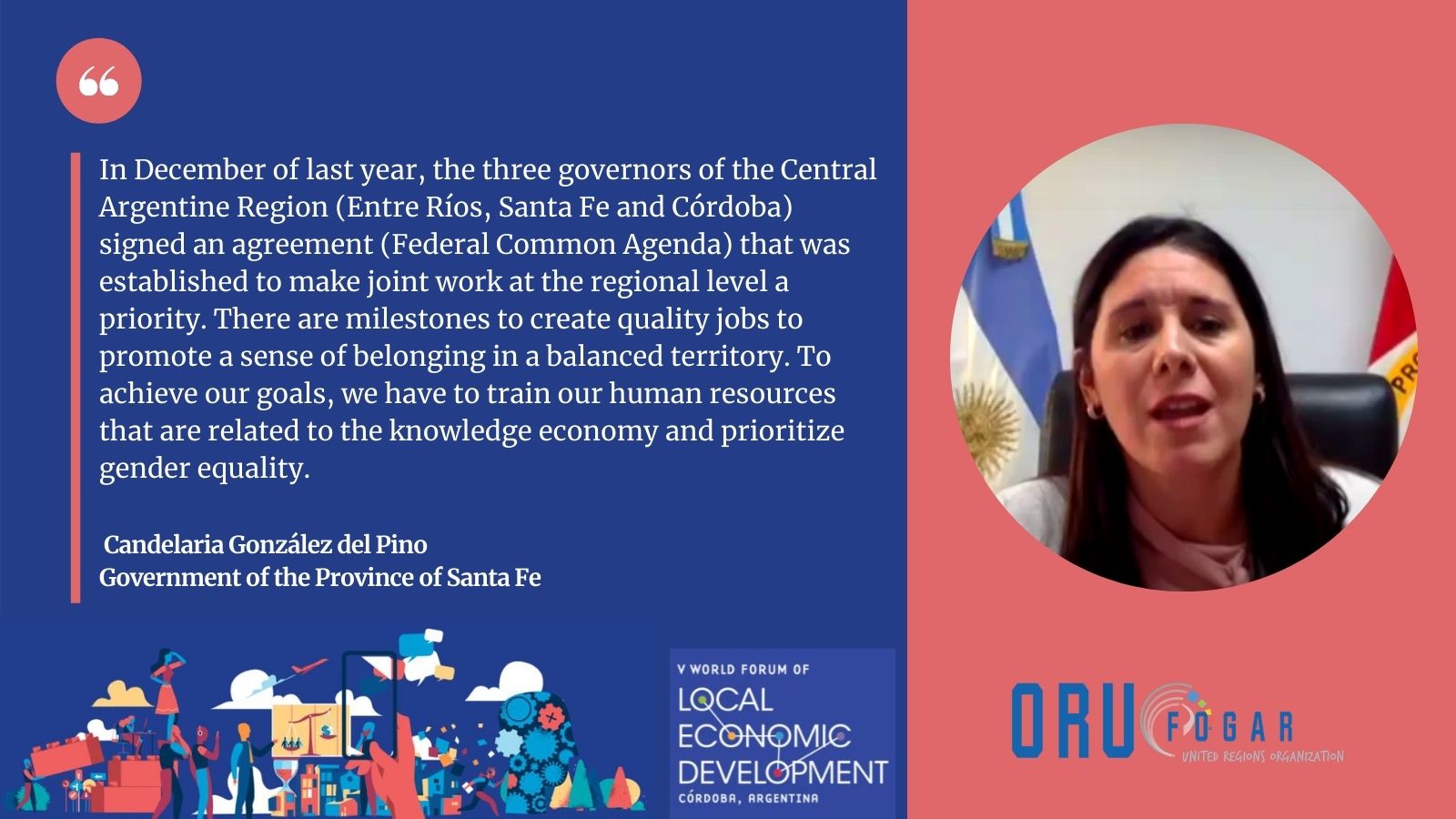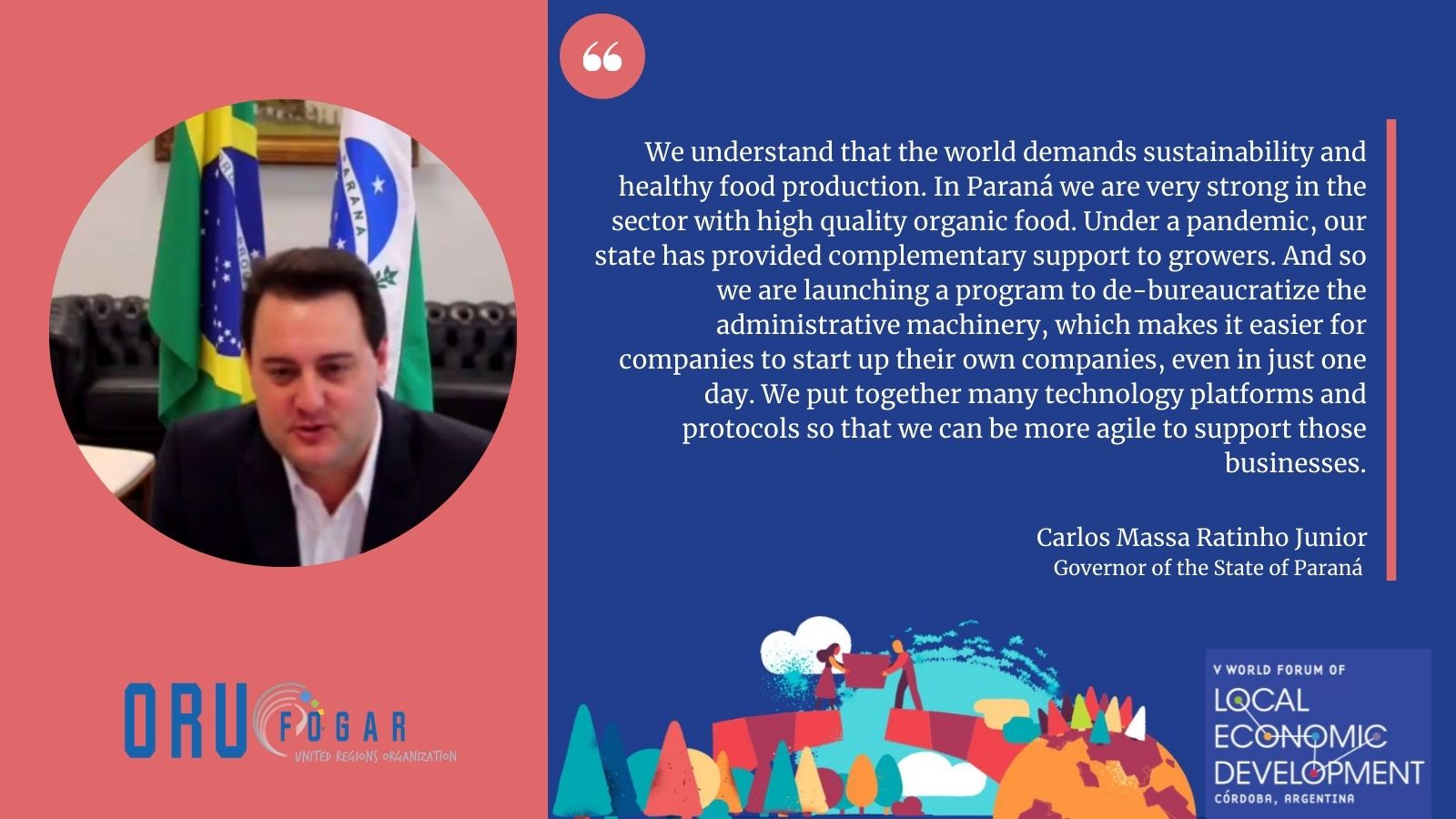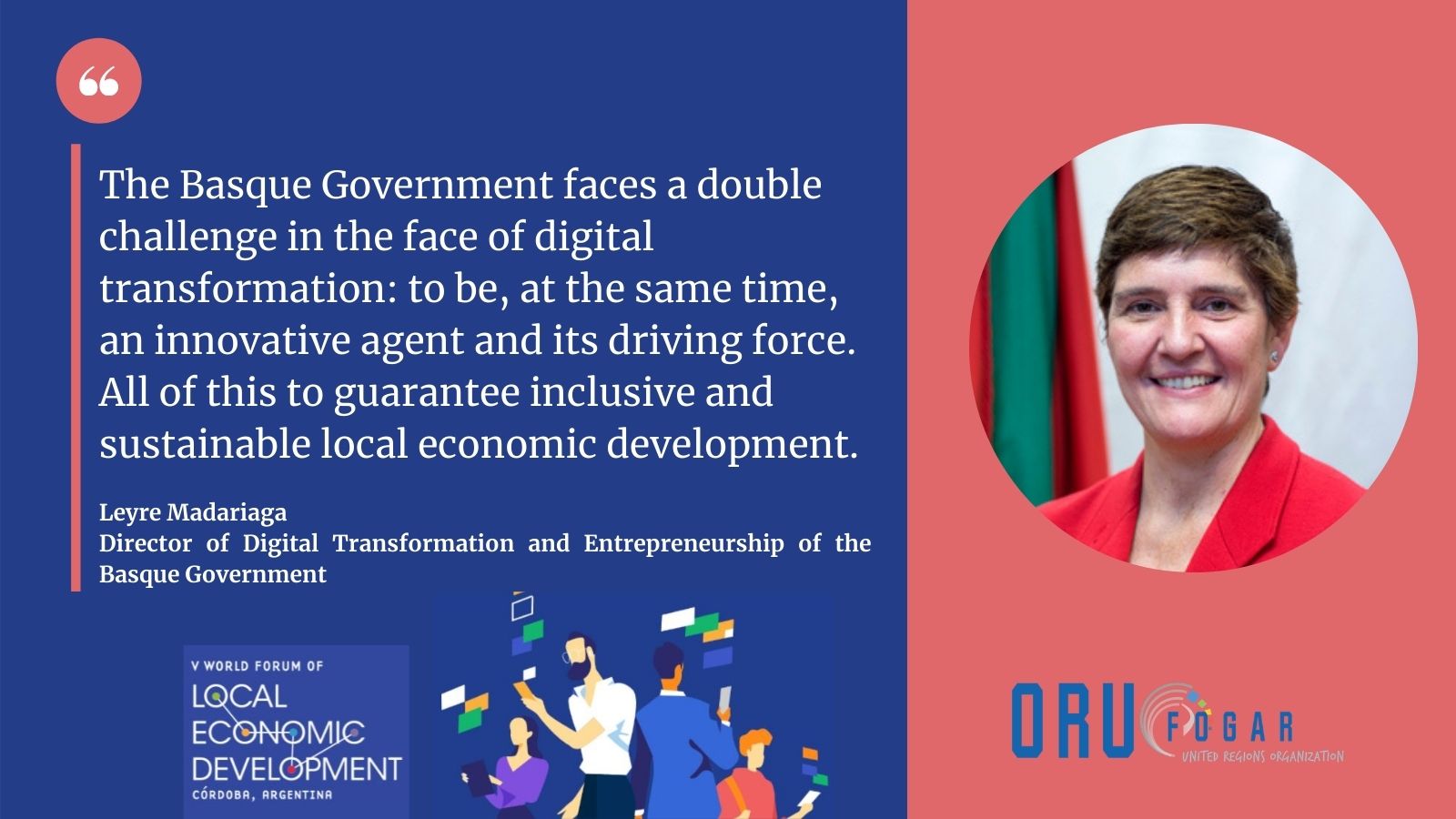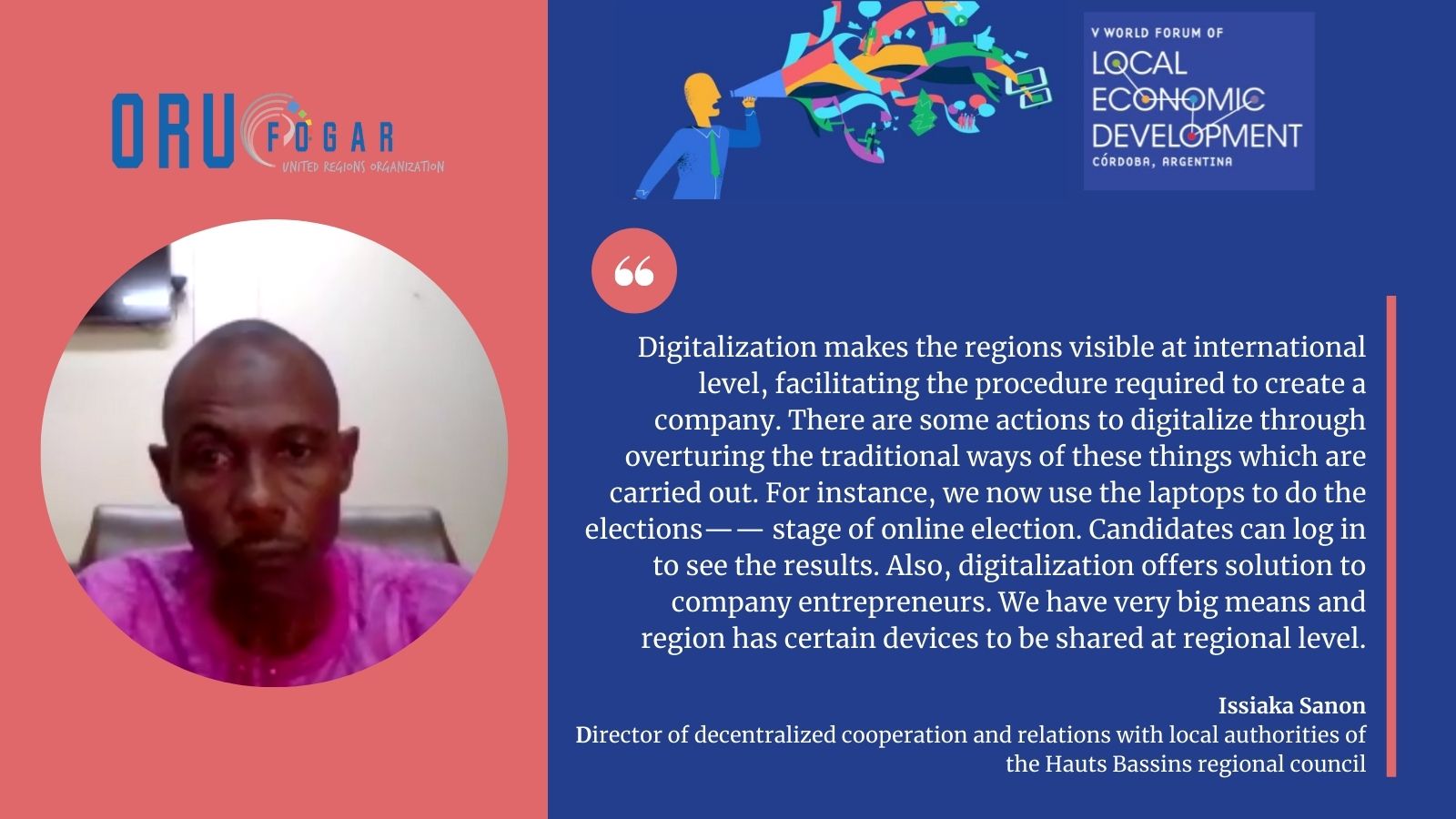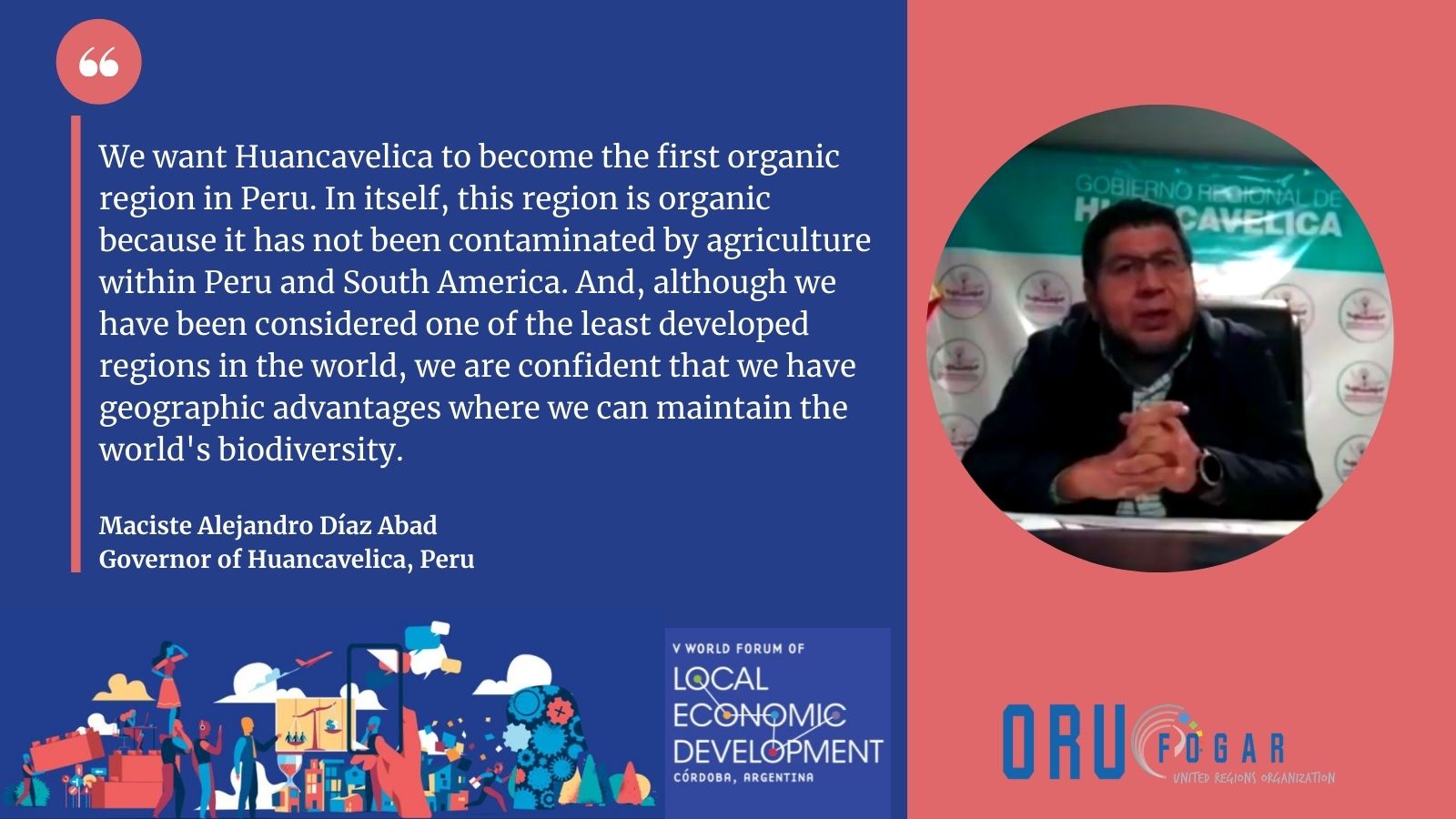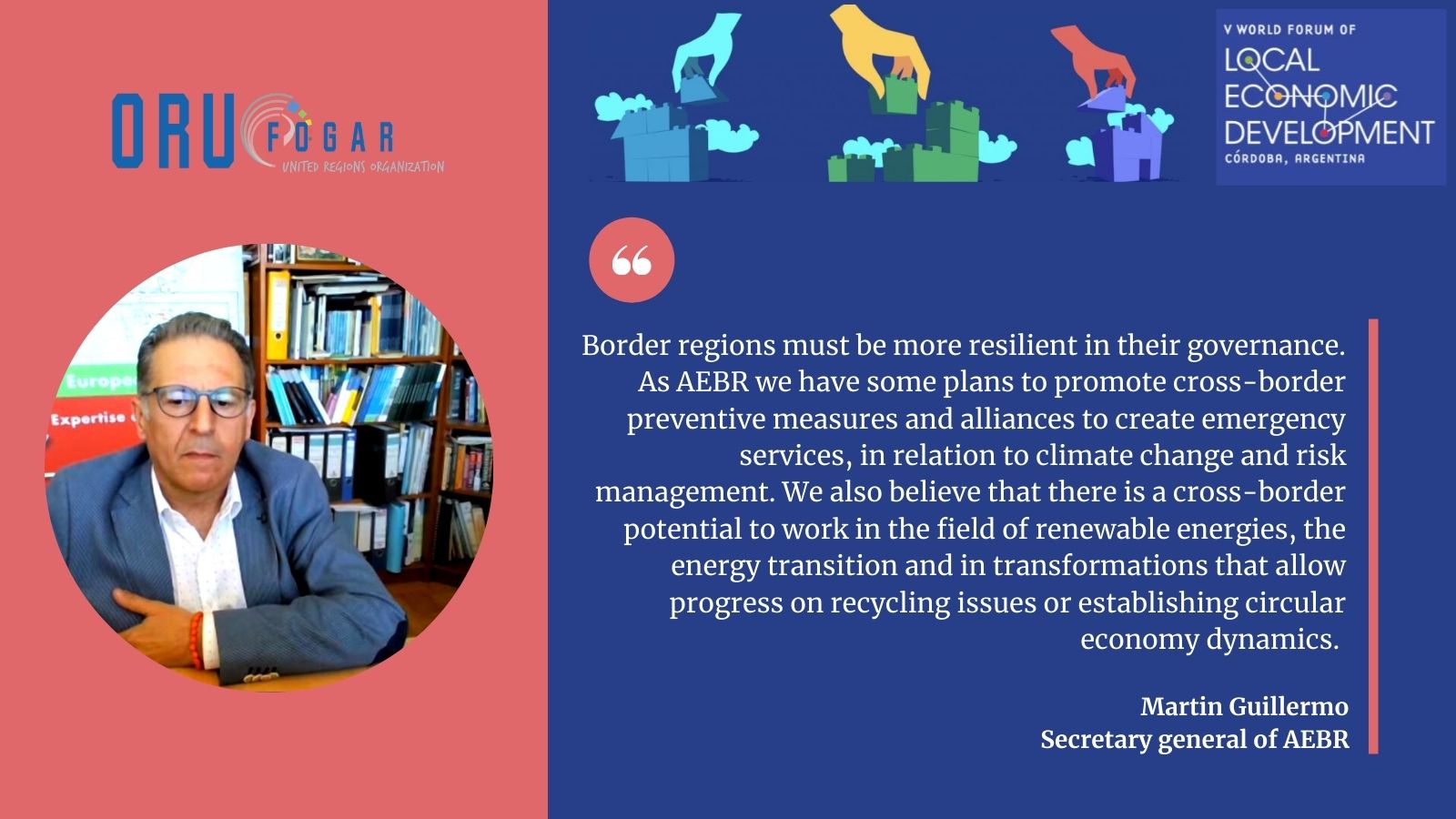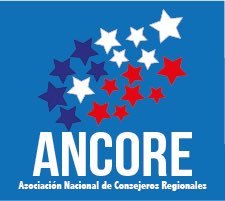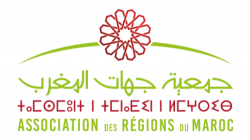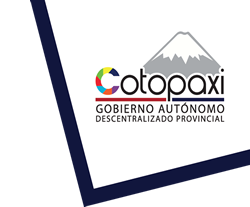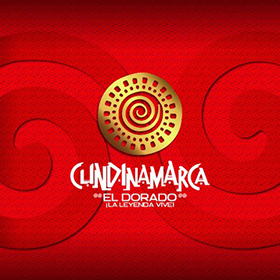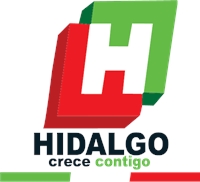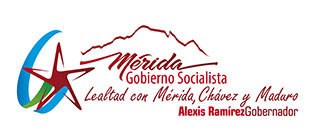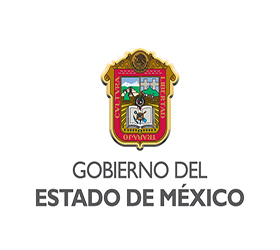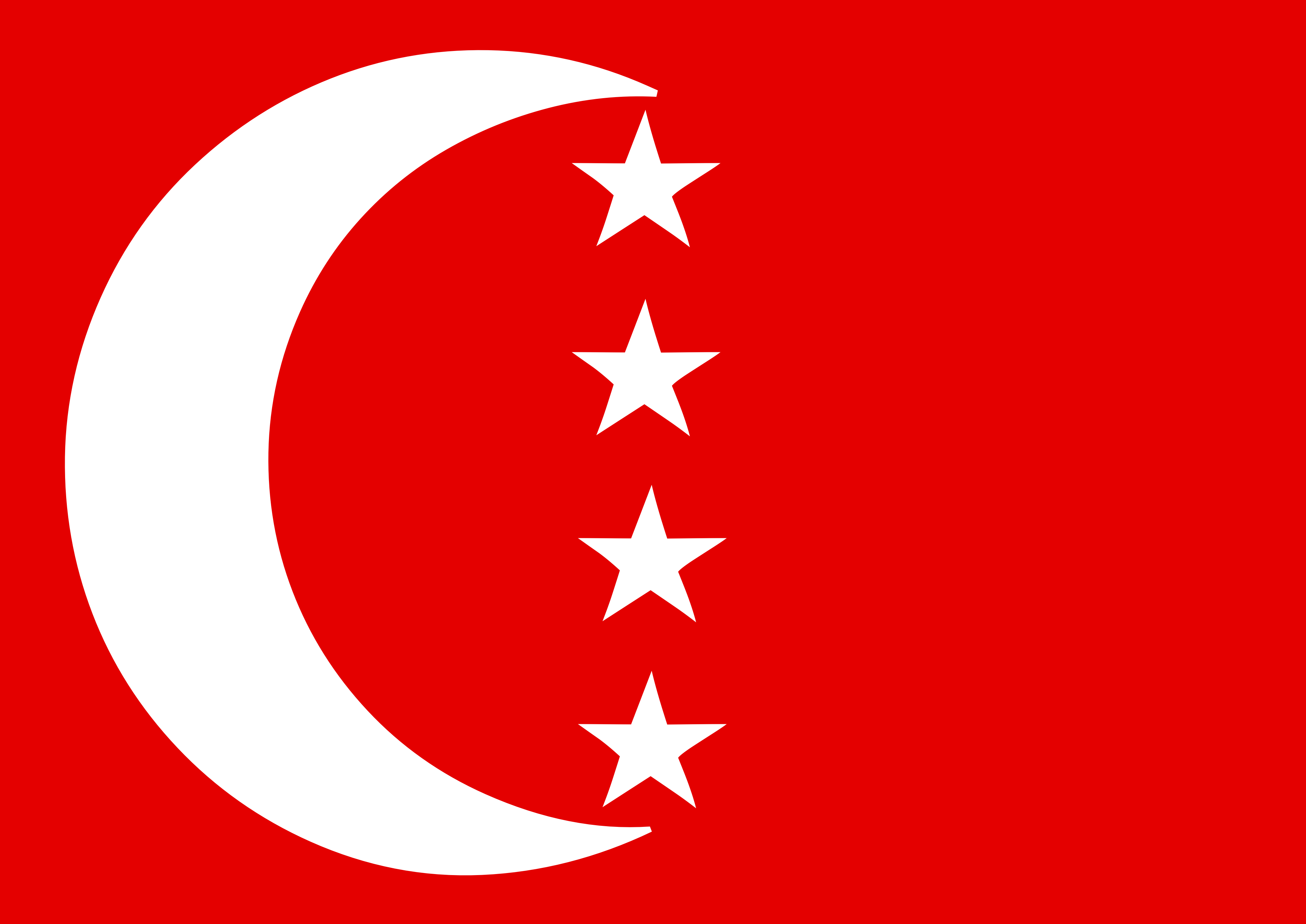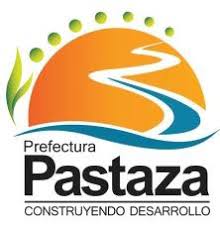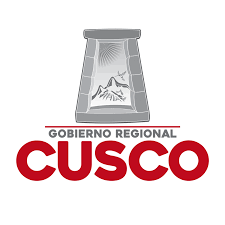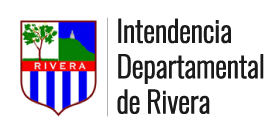Fourth day of the V Forum
After the weekend, the 5th Global Forum featured some truly inspiring interventions. In a space provided by the UNDP, entitled "Facilitating territorial responses to local needs and inequalities amplified by the crisis: the strategic value of alternative economic models", Christian Felber, the driving force behind the concept of the Economy of the Common Good, and Donnie Maclurcan of the Post-Growth Institute took part.
Felber, from Austria, explained that the Economy for the Common Good is an equidistant approach between capitalism and socialism. "Almost all constitutions consider the economy within the parameters of the "common good". Capitalist practice, however, thwarts this goodwill". In a holistic approach, Professor Felber believes that the economy should be resituated, subordinating it to social life, while at the same time subordinating the latter to the ecosphere. He therefore advocates ethical markets, cooperative work and a policy of taxation or subsidies to support the economy of the common good.
Donnie Maclurcan, from Australia, explained that in the face of a linear economy that goes from extractivism to pollution and the creation of waste, there is the possibility of a circular economy. He argued that this circularity was not only about environmental processes, but also about purely economic processes. "We are in an economy that creates both accumulation and superlative debt. We advocate an economy where money circulates". He explained that 20% of the world economy moves within the parameters of the social and cooperative economy. He defended the need to increase this percentage and to have enterprises that have a purpose.
Meanwhile, several members of ORU Fogar who participated in the fourth day of the V World Forum on Local Economic Development ended up dealing with food issues, in parameters that were not far from those approaches. The governors of Huancavelica, Peru, Macistes Díaz, and of the State of Paraná, Brazil, Carlos Massa Ratinho Junior, did so in the framework of the space entitled "Mechanisms of productive diversification and new productive models for a sustainable and cohesive reactivation". Both showed the commitment of their territory to organic and quality food.
The Peruvian stated that his region, Huancavelica, is going to become the first organic region in Peru. He explained that this is possible because, for the moment, this region is one of the few in the country and on the continent where agriculture has not been contaminated. In this way, the governor is confident that Huancavelica can stop being one of the least developed regions in the world, thanks to the advantage of having "maintained our biodiversity".
Governor Carlos Massa Ratinho Junior explained that, understanding that the world demands sustainability and healthy food production, the State of Paraná has been giving complementary support to producers. He said he was committed to administrative bureaucratisation to facilitate the start-up of food businesses.
Martin Guillermo Ramirez, Secretary General of the Association of European Border Regions, added to this theme when he said that cross-border projects could establish circular economy dynamics and, in this way, territories could become more resilient. He said that AEBR could promote cross-border plans and partnerships to create emergency services, in relation to climate change and risk management. He finally stated that there was a cross-border potential to work on renewable energy, energy transition and transformations to advance recycling issues.
Three members of ORU Fogar, from three very different realities, intervened in spaces talking about the economic and job creation possibilities of the digital revolution. Issiaka Sanon, director of cooperation of the Regional Council of Hauts Bassins, Burkina Faso, affirmed that his region is making an effort to position itself in this sense because "digitalisation makes the region visible at an international level and facilitates the procedures to create companies". He added that the region is putting all possible means in place so that digitalisation can offer solutions to entrepreneurs and businesses.
Leyre Madariaga, Director of Digital Transformation and Entrepreneurship of the Basque Government presented the "Strategy for the Digital Transformation of Euskadi 2025" which aims to accelerate the adoption of incipient technological levers, strengthen development and take advantage of the proven potential of enablers, thus contributing to the technological-digital transition, which will in turn support the energy-environmental transition, the social transition and the health transition. The Basque government plans to support this strategy with an investment of 1.4 billion euros.
Candelaria del Pino, from the Province of Santa Fe, explained that, in December last year, the three governors of the Central Region of Argentina (Entre Ríos, Santa Fe and Córdoba) signed an agreement (Agenda Común Federal) that established joint priorities at regional level, which basically aimed to create quality jobs. To achieve this goal, she pointed out the need to train human resources in relation to the knowledge economy.
